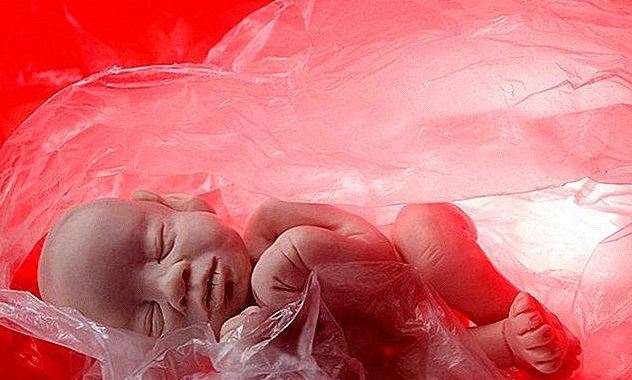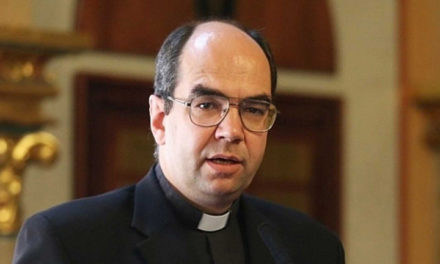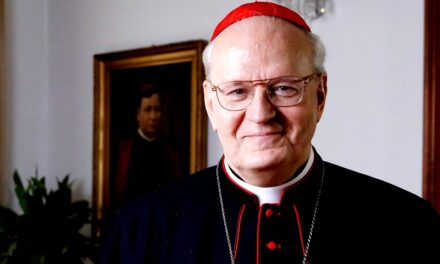Historical changes are expected in the "land of freedom", but they hardly point in the right, humane direction.
According to the Swiss constitution, "The strength of the people can be measured by the welfare of the weak". But who can be weaker than unborn fetuses? And how is the strength of the peoples of Europe found in such a contest?
While public opinion was adequately occupied by the virus, then relaxation and vacations, very important laws on human reproduction procedures were voted in the French National Assembly in the summer. Until now, only opposite-sex couples could participate in the artificial insemination program if they could not have a child naturally and were married or had been living together for at least two years. One of President Emmanuel Macron's election promises was to radically change this regulation, which many consider outdated.
The new bill was already accepted in the first reading last autumn by the French lower house, but after that the heated debate continued in the special committee dealing with the subject. At the end of July – during the summer heat and forced march, negotiated in a time frame of only 25 hours – the National Assembly said yes for the second time, but the final word belongs to the Senate. According to analysts, a final decision is expected to be made at the beginning of next year.
What does this new regulation contain, which Catherine Michaud, president of the GayLib LGTB association, called a historic step, and left-wing philosopher Sylviane Agacinski called an ethical and anthropological revolution?
One of the truly historic, but dubious, steps is that artificial insemination becomes available to all women up to the age of 43, i.e. to lesbian couples and single women, with a sperm donor that is, of course, anonymous - but can be revealed after the child is 18 years old - but is now covered by the health fund with support. The law also relaxes the issue of surrogacy, as in the case of two female partners, it allows the artificially fertilized egg of one party to be carried by the other. Thus, one of them will be classified as genetic, and the other as biological mother. Since many women have already used the flask program at their own expense in private clinics in more lenient countries, this change does not represent a real breakthrough, but it will further increase the number of children born without a father. All of this despite the fact that, according to the UN Charter of Children's Rights, children have the right to know and grow up with their parents as much as possible.
However, the law regulates a much broader range of issues, and basically formulates a new bioethics - which is almost never heard of in reports celebrating women's reproductive freedom.
France, the initiator of revolutions, the nanny of the Enlightenment, is now taking the philosophy of the man who deifies himself and puts himself at the center of the world to the limit. In the name of freedom, a path open to a new barbarism is allowed for abortion up to birth on psychosocial grounds, and by abolishing the protection of human embryos until now, it allows the genetic modification of embryos, the production of gametes from their stem cells, and even the implantation of human stem cells into animal embryos.
After the first vote held in the autumn of 2019, the French medical academy expressed its concern about the systematic "production" of children without "bilateral descent", and many scientists, legal experts and church professionals protested, but their arguments were dismissed as "outdated" and "ideological". . More than three thousand amendments were treated in the same way. Before the second negotiation period, on June 29, the archbishop of Paris, the physician-bioethicist Michel Aupetit, in his statement published in Le Figaro, states:
"This package of bioethical laws seriously and dangerously transforms the foundations created by our civilization: respect for man, human dignity, human life and health. These laws affect the essence of our humanity, our humanity. (…)
In the midst of the fear of death caused by the pandemic, we are once again busy transforming the relationships of origin that define the human person, trivializing human embryos as if they were ordinary consumer goods, products that can be selected, analyzed, and thrown away; we artificially produce gametes for the sole purpose of feeding the myth of 'non-sexual' conception. (…) With the decision to expand the market for children, to separate medically assisted reproduction from the difficulties of procreation and conception, we seriously attack human dignity. This decision supports and encourages the reproduction industry with more and more embryos, which clearly shows that the project is based on purely economic reasons. Are we really indifferent to the human embryo? (…)"
The consumer society actually awakens new and new desires in adults, regardless of the consequences for the next generations. Even to the point of doing violence to them.
Is it not also violence to deliberately deprive a child of its father, if we carry out selective abortions on twin fetuses? Isn't it violence if a child discovers that the embryo from which he developed could have ended up under a researcher's microscope or in the garbage after being frozen for a longer or shorter time?
In our eyes, is a child at all, a person with equal rights, at the mercy of the omnipotence of the "parent project"?
II. Already 25 years ago, Pope John Paul II felt the need to confirm:
With respect to the right to life, every innocent person is unconditionally equal to everyone else. This equality is the basis of all authentic social relations, which, if it really wants to be authentic, cannot be based on anything but truth and justice, in such a way that it recognizes and protects every man and woman as a person, and does not regard them as things that are above arrangements can be made. (Evangelium Vitae, on the inviolability of human life, point 57) . The pandemic has shown how necessary it is for our selfishness to be overcome by solidarity, and in addition, it is still of primary importance to respect the equal dignity of all people.
In his writing, the French archbishop asks whether the representatives will have the courage and insight to resist the market and ideological pressure, barely disguised by loud slogans, and reverse the logic of "more and more" which not only accumulates debts, but also raises existential questions affecting both present and future generations. Unfortunately, it has since been proven that it was not.
Source: szemlelek.blog.hu
Cover image: charlotteswebneedlework.com












